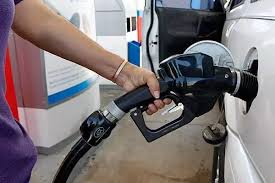NIGERIA: Fingers point at Tinubu as NNPCL reportedly again increases fuel pump price to N617 per litre

*It’s neither Tinubu nor NNPCL but forex – Market Source
*Fears price climbing to N1,000 per litre
By KEMI KASUMU and OUR REPORTER, Abuja
The Nigerian National Petroleum Company Limited (NNPCL) has further increased the pump price of petrol, known as Premium Motor Spirit (PMS), from N537 to N617 per litre.

The DEFENDER reports that a day after President Bola Tinubu was inaugurated, the NNPCL increased the fuel price from N184 per litre to maximum of N537 per litre depending on the location.
The development was occasioned by Tinubu’s inaugural speech, where he declared fuel subsidy had gone.
Tuesday morning of July 18, 2023 in response to the new price regime, NNPCL filling stations in Abuja reportedly witnessed brief queues, particularly the one located along Murtala Muhammed Express Road, Kado remained shut for some few hours, as the petrol attendants had to adjust their fuel pumps to reflect the new price of N617 per litre.
A market source, who would not want to be mentioned, confirmed the new development, but said it was caused neither by Tinubu nor NNPCL.
“I must be frank with you that the fuel price increase is neither by Tinubu nor NNPCL. It is the foreign exchange rate that determines what the market should be.
“I only pity Tinubu because the fuel price is going to N1,000 and there is no way you can manage an economy this way,” he told The DEFENDER Tuesday morning.
The news of price rising to N700 broke into the airspace recently and Independent Petroleum Marketers Association of Nigeria (IPMAN) denied it ever existed. With the new development coming from NNPCL, all eyes are on what IPMAN pump price of the product will be.
In the first half of 2023, Nigeria spent N3.6 trillion on fuel subsidy alone while the Federal Government said the country would save close to N6.7 trillion if the fuel subsidy payments now discontinued.
Checks showed that Nigeria had spent N13.7 trillion on fuel subsidy in the last 13 years, according to Nigeria Extractive Industries Transparency Initiative.








